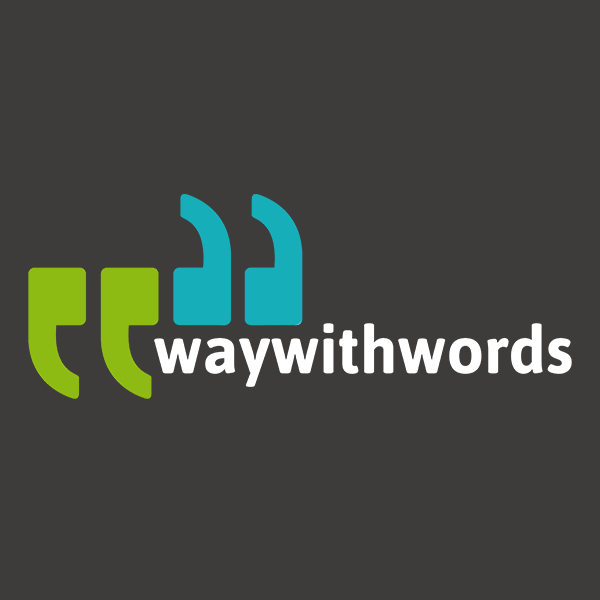What is Transcription?
There are three common uses and meanings for transcription.
These involve genetic transcription, academic transcription, and audio, video or speech transcription.
Genetic Transcription Defined
First is a genetic term, when asked what is transcription in medical circles.
This term is the first step of gene expression, in which a particular segment of DNA is copied into RNA (mRNA) by the enzyme RNA polymerase.
Both RNA and DNA are nucleic acids, which use base pairs of nucleotides as a complementary language. The two can be converted back and forth from DNA to RNA by the action of the correct enzymes. During genetic transcription, a DNA sequence is read by an RNA polymerase, which produces a complementary, antiparallel RNA strand called a primary transcript.
In genetic transcription, a portion of the double-stranded DNA template gives rise to a single-stranded RNA molecule. In some cases, the RNA molecule itself is a “finished product” that serves some important function within the cell. However, genetic transcription of an RNA molecule is often followed by a translation step, which ultimately results in the production of a protein molecule.
Academic Transcription Defined
An academic transcript is a copy of a student’s permanent academic record, which usually means all courses taken, all grades received, all honors received and degrees conferred to a student from the first day of school to the current school year.
An academic transcript may also contain the number of people in a class, and the average grade of the class. An official academic transcript is prepared and sent by an issuing school by the Student Registrar with an original signature of a school official on the school letterhead and sealed by the school.
When students change schools, the cumulative transcripts get mailed from school to school. Transcripts usually consist of grades 9-12 when applying to colleges.
The meaning also commonly involves academic transcription services provided by transcription companies.

Speech To Text Transcription Defined
And then there is the use of the term for audio, video or speech to text transcribing, alternatively speech transcription when asked what is transcription in business circles.
For us, in its simplest form, speech transcription involves audio transcribing or video transcribing what you say. Or seeing what someone else says. Or seeing what a whole group of people has said.
Transcription is also the transformation of recorded speech into a text format. There are various specialty fields in audio transcription, with medical and legal being the most recognised. By definition, medical transcription (or MT) is an allied health profession which deals in the process of speech transcription or converting voice-recorded reports as dictated by physicians or other healthcare professionals, into text format. But while some speech transcription is specialized, others are not – a business meeting might be transcribed, or a story, or a conference, or an interview, or a disciplinary hearing, or a YouTube video to be edited. So for this definition of transcription, recordings can be transcribed into text format.
Transcription Services
Clients use us for a wide range of subjects. Our transcription services are often chosen because of our excellent reputation to transcribe many local voice to text dialects. We also can process large volumes of audio or video recordings.
Way With Words‘ clients request a variety of transcriptions, which include: dictations, legal disputes, and court cases, disciplinary hearings, focus group research and findings, and media such as TV, film, Vimeo, and YouTube videos. We also transcribe medical research, general research, teleconferencing discussions, business meetings and summaries, police cases, private investigations, insurance reports, financial reports, marketing research and strategies, podcasts, journalist interviews, academic thesis, university lectures, as well as religious sermons.

Academic Transcription
Clients include universities, teaching schools, academic institutions.
Commonly used for academic research, field studies, postgraduate research collections, focus group recordings and analysis, institutional lectures and speeches, as well as academic presentations.
Business Transcription
Clients include companies and businesses of all sizes and across all industries.
Commonly used for conference calls, earnings calls, management proceedings, market research strategies, stakeholder presentations, boardroom and corporate meetings, entrance or exit job interviews, AGMs as well as minute reports or memos.
Conference Transcription
Clients include event companies, businesses and government institutions that host conferences and workshops.
Commonly used for conferences, seminars, and workshops that cover topics such as research methodology seminars, business development, entrepreneurship, technology, education, culture and community, finance, business models, corporate strategy, tourism, leadership, energy, environment, as well as medical research.
Disciplinary Transcription
Clients include human resource departments, managers, labour lawyers, unions, business and government.
Commonly used for issues related to disabilities, discrimination, employee development, employee discipline, employee leave management, equal employment opportunity, harassment and special work arrangements.
Financial Transcription
Clients include corporations, merchant banks, regulatory bodies, building societies, accountants, compliance companies, business schools, finance advisers, webcast providers, management consultants and finance portals.
Commonly used for forex consulting, wealth management advice, insurance agreements, finance brokering, banking, investor relations, earnings calls, annual financial and budget meetings, business surveys, interim company results, financial seminars and training sessions, analyst interviews, financial reports and company reports.
Focus Group Transcription
Clients include business services, marketing groups, PR companies, brand houses, research groups, academic institutions and government departments.
Commonly used for roundtable discussions, surveys, market research, business discussions, brainstorming workshops, strategic planning sessions, academic research, meetings and group discussions.
Government Transcription
Clients include local, regional, federal, provincial, state and national governments.
Commonly used for meetings, parliamentary discussions, public policy debates, public reports, cabinet or other government minutes and government research into its many programmes.
Insurance Transcription
Clients include insurance, medical and legal professionals and any other relevant or related claims experts.
Commonly used for insurance recorded statements, insurance testimonials, insurance and damage reports, agent summaries, file interviews, notes on investigations and probes, summary reports, theft/property damage reports and insurance reports for property, casualty, holdings and assets.
Interview Transcription
Clients include professionals from various disciplines, including business people, lawyers, authors, journalists, students, researchers, recruiters, multimedia professionals, and police.
Commonly used for research interviews, one-on-one interviews, job interviews, news/journalist interviews, radio interviews, focus group interviews, group discussions, legal interviews, market research, police interviews, teleconferences and telephone interviews.
Investigation Transcription
Clients include attorneys, police departments, detectives, private investigators, law firms and private individuals.
Commonly used for police investigations, property investigations, insurance investigations, disciplinary hearings, crime scene investigation, forensic reports, taped confessions, surveillance recordings, wiretaps, fire and motor accidents, legal proceedings, hearings and private meetings, medical investigation and even scientific investigations.
Legal Transcription
Clients include law firms, law enforcement organisations, attorneys, police departments, detectives, private investigators and private individuals.
Commonly used for general correspondence and memos, attorney dictation, deposition transcripts and recorded witness statements, medical-legal reports, debt collection, legal agreements, contracts, wills and trust documents, commercial and domestic conveyancing, medical negligence and personal injury, immigration, videotaped depositions or interviews, surveillance and investigative reports and telephone hearings.
Market Research Transcription
Clients include market researchers, marketing specialists, brand houses, businesses and government.
Commonly used for collecting data from potential customers, focus groups, producers and service or product providers for evaluation or to capture insights from a wide variety of sources: focus groups, consumer forums, interviews, opinion polls on possible outcomes for a market strategy.
Media Transcription
Clients include broadcast companies, television studios, production houses, news journalists, newspapers, social media distribution agents, video creatives and podcasters.
Commonly used for films, television shows, documentaries, adverts, promotional videos, training materials, news pieces, podcasts, radio broadcasts and talk shows.
Medical Transcription
Clients include doctors, nurses, administrators, medical researchers, pharmaceutical companies and other healthcare providers.
Commonly used for keeping patient records, doctor dictated reports, procedures and notes, treatment history of patients, medical research interviews, healthcare research and medical findings.
Podcast Transcription
Clients include podcasters, media houses, radio stations, social media thought leaders and participants.
Commonly used for webcast lectures, interviews, legal proceedings, sports events, audio library hosting, webcasts and television studio conferences.
Police Transcription
Clients include police departments, government security agencies, private security firms and other law enforcement agencies.
Commonly used for suspect interviews, patrol reports, disciplinary hearings, tribunal hearings, victim interviews, witness statements, fire reports, emergency service phone calls, 911 or other emergency dispatch calls, memorandums and internal communications, surveillance footage and wiretaps, inmate or prisoner phone calls, and staff and departmental meetings.
Sermon Transcription
Clients include churches, prayer groups, bible study groups and other religious bodies.
Commonly used for church lectures, religious coaching, church notes, church correspondence, prayer/study groups, ministry, gospel seminars and bible reading.
Telecommunications Transcription
Clients include individuals, business, and government.
Commonly used for teleconferences, videoconferences, Skype, VOIP, WhatsApp or other software chat services.
